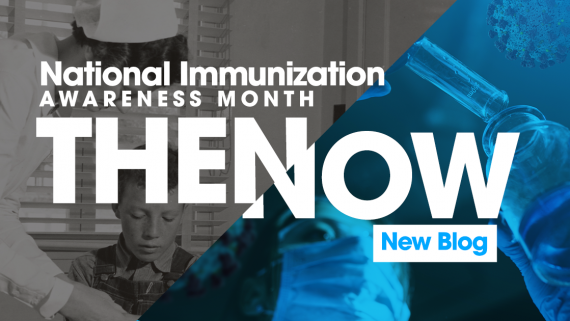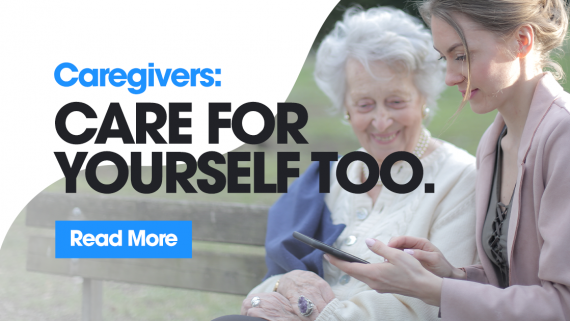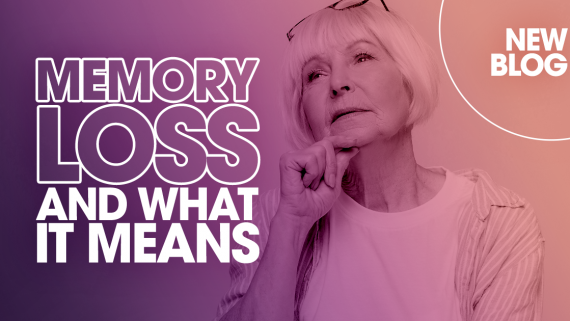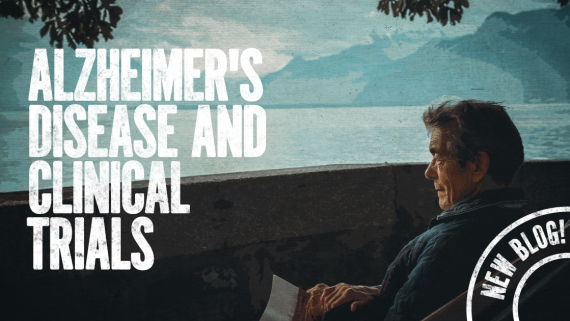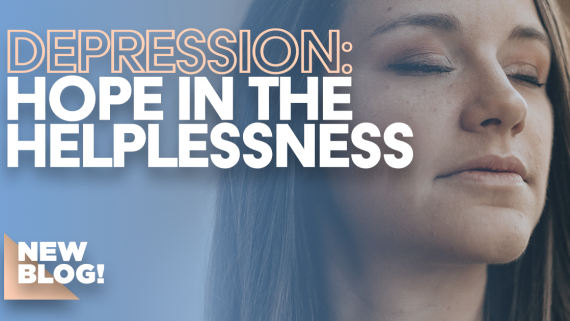August is National Immunization Awareness Month (NIAM). NIAM’s purpose is to promote the importance of vaccines by educating the public on how they prevent serious, and often deadly diseases. With the COVID-19 US death toll currently sitting at almost 145,000 lives lost, the urgency for a vaccine and effective treatment grow with each passing moment.
History of Vaccines
In 1796, a country doctor by the name of Edward Jenner created the first vaccine. He took the pus from a milkmaid’s hand with a cowpox lesion and inoculated eight-year-old James Phipps, who had smallpox. His experiments laid the foundation for vaccinology. Vaccines are humanity’s greatest triumph over diseases like polio, smallpox, whooping cough, measles, and more. These diseases resulted in infant mortality rates of 20% just a little more than a century ago.
Vaccines help our body remember how to fight illnesses. When your immune system encounters a germ, it fights it off over several days while it makes and uses all the germ-fighting tools it needs to beat it. In this process, the immune system remembers what is necessary to protect the body in the future. It puts this information into memory cells, and the next time it encounters that same germ, it can quickly overcome it. Vaccines work similarly by imitating an infection. They rarely cause illness, but your immune system produces the needed antibodies to fight it. Some vaccines require repeated doses to complete immunity.
The Fight to End COVID-19

Around the world, over 165 vaccines are being developed by researchers against the coronavirus. 27 are in human trials. Although vaccines typically take years to become publicly available, scientists are racing to deliver a safe and effective vaccine by 2021. Moderna’s mRNA-127 vaccine phase III trial began 7/27. Astra Zeneca, Sinopharm, Murdoch Children’s Institute, and Sinovac all have vaccines in phase 3 trials.

None of these potential new vaccines would ever become available without research studies and the volunteers participating in them. Research studies give every able person the ability to advance medicine and help end diseases like COVID-19. Get involved in future studies by calling (603) 319-8863, or click here.
References:
https://www.cdc.gov/vaccines/hcp/conversations/downloads/vacsafe-understand-color-office.pdf
https://www.healthaffairs.org/doi/full/10.1377/hlthaff.24.3.611
https://www.nytimes.com/interactive/2020/science/coronavirus-vaccine-tracker.html
https://www.aap.org/en-us/about-the-aap/aap-press-room/campaigns/immunizations/Pages/default.aspx
Alzheimer’s is a progressive disease that impairs memory and many other essential mental functions. Although the changes are more subtle at first, eventually those diagnosed will need the help of a caregiver to perform their daily tasks. In many cases, the caregiver is a loved one or family member that volunteers to support them. Being a caregiver can be physically, emotionally, and mentally draining. Learning to care for yourself is the best way to ensure you will be there to care for your loved one.
From Care Partner to Caregiver and Burnout
In the early stages of Alzheimer’s, many function independently, and your role is more of a care partner who will help support and plan for the future of your loved one. As the disease progresses, their reliance on you will continue to increase until they need you 100%. Navigating the physical and emotional ups and downs of this journey can test even the most patient souls. It can be all-consuming, and just like any fire, it will eventually burn itself out.
Approximately 15 million Americans provide unpaid care to an older adult. Those that provide substantial care are more likely to have physical and emotional health issues. Caregiver burnout is real and can snowball over time. Recognizing the signs of burnout can help you get the help you need to continue providing the best care possible.
Signs of Caregiver Burnout:
- You have much less energy and always exhausted
- Increasingly impatient and irritable with who you are caring for
- Neglectful of your own needs
- You get sick more often
How to be a Healthy Caregiver

One of the most important things you can do as a caregiver is to take care of yourself. Keep your health a priority by seeing your doctor when needed, exercising regularly, and eating a healthy diet. The National Institute on Aging also recommends:
- Ask for help, and take it when you need it
- Take breaks during the day
- Join a support group online or in-person
- Spend time with friends
Research for a Better Future Free of Alzheimer’s
As an Alzheimer’s caregiver, you witness firsthand how this disease changes a person until very few pieces remain of their former selves. Alzheimer’s has no cure, and there is no way to stop the progression of it. Scientists and researchers are hard at work, identifying potential new ways to detect, prevent, manage, and eventually cure it. Clinical research studies and volunteers who participate in them provide a way to determine if they are safe and effective.

If you or a loved one has been diagnosed with Alzheimer’s, research studies may be an option. All Alzheimer’s participants must have a study partner that spends some time with them during the week, to accompany them to some of the study visits. This relationship provides researchers additional insight into the changes that have occurred over time with the patient. Participating in research may provide caregivers another layer of support and education about memory loss.
Caregivers do not need to attend each study visit, sometimes allowing the flexibility to do some shopping or enjoy some alone time. Regular assessments at study visits and conversations with study staff also help caregivers stay informed on their loved one’s health. Caregivers make many decisions with and for their loved ones, consider participating in a research study.
To learn more about the Alzheimer’s studies currently enrolling at our Methuen, MA location, call (978) 655-7155, or click here.
References:
https://www.alz.org/help-support/caregiving
https://www.nia.nih.gov/health/getting-help-alzheimers-caregiving
https://www.helpguide.org/articles/stress/caregiver-stress-and-burnout.htm
Summertime symbolizes beaches, tiki torches, mosquitos, and late-night fun. However, for the many individuals who have skin conditions like psoriasis and eczema, it means another season that brings, in some cases, a rollercoaster of symptoms that can flare-up more often than not. Skincare is essential all year, but with a little know-how, you can help keep the lid on summer skin issues.
Eczema and Psoriasis Summertime Care
Let’s look at two of the most common skin conditions and what you can do to manage during these summer months.
Atopic Dermatitis (Eczema)
Managing eczema during any time of the year can be a challenge due to it flaring up in extreme heat and cold fluctuations. Staying moisturized is vital in maintaining the much-needed protective barrier with eczema. Some of The National Eczema Foundation recommendations for managing the skin condition in the summer include:
- Hydrate from the inside out by drinking plenty of water.
- Swim! Chlorine helps eczema tremendously, but rinse and moisturize immediately after.
- Wear loose-fitting, light clothing.
- Carry a cooler bag with a bottle of cold water and a washcloth to wipe the sweat off right away.
- Keep gels and lotions in the fridge to keep them cool.
Psoriasis
Summer humidity and sunshine help soothe psoriasis symptoms, while the potential dry out from chlorine and the constant AC running can trigger a flare-up. Some recommendations to keep your psoriasis better managed during this time are:
- Protect your skin from sunburn. Approximately 50% of people with psoriasis experience Koebner phenomenon where psoriasis forms at the site of skin injury, like sunburn. Alternatively, protected and limited sun exposure is beneficial.
- Rinse off after swimming and moisturize within three minutes of any shower. Reapply moisturizer during the day to prevent skin from drying out.
- Saltwater can soothe psoriasis, so take that dip in the ocean!
Other Summer Skin Issues
Even without the diagnosis of a skin condition, other summer skin issues such as acne, folliculitis, heat rashes, and sun allergies can wreak havoc on summer fun. Changing out of tight, wet clothes, wearing loose-fitting clothing, and paying attention to specific plants and infested ocean waters can help you to avoid most of these. Learn more about preventing common summer skin issues on the AAD website. Also, remember to bring anything concerning to your dermatologist immediately.

Clinical Research is Improving Options for Skin Conditions
Chronic skin condition symptoms often persist despite the strictest routines and lifestyle changes. In many cases, working with a dermatologist and following their recommended treatment plan is the next step. However, there are still individuals that remain unable to benefit from the many options that exist. Clinical research studies are helping to ensure everyone has access to safe, effective skin management choices.
Volunteers participating in research studies make these opportunities possible. Qualified participants have the opportunity to gain access to potential new options not currently available and learn more about their skin condition along the way. ActivMed is currently looking for participants to enroll in a variety of dermatological studies. To explore now enrolling opportunities, click the link for our Portsmouth, NH location, or Beverly, MA location.
References:
https://nationaleczema.org/summer-tips/
https://www.everydayhealth.com/psoriasis/living-with/ways-to-soothe-psoriasis-summer
https://www.aad.org/public/everyday-care/skin-care-secrets/routine/prevent-summer-skin-problems
Glucose or sugar is an essential source of fuel for your body. Type 2 diabetes affects the way your body metabolizes glucose. It used to be known as adult-onset diabetes. However, in recent years, the number of children diagnosed has risen with childhood obesity rates. As with other chronic conditions, diabetes must be managed appropriately to avoid irreversible issues later in life.
What Causes Diabetes?

Just as glucose is an important source of fuel, insulin is a hormone that helps regulate the movement of sugar into your cells. Insulin is produced in the pancreas gland. In type 2 diabetes, your body is resistant to insulin, or cannot produce enough insulin. Without insulin, too much glucose stays in your blood. If too much is in your blood, it begins to stick to the blood vessels and will eventually impede blood flow.
Many of the complications from diabetes take a while to develop. Heart disease, nerve damage, kidney damage, and eye damage are a few of the conditions diabetics are at risk for. Symptoms include frequent urination, increased thirst and hunger, fatigue, and blurred vision. Being overweight, genetics, and other environmental factors are possible causes.
What Increases Your Risk?
Some individuals will have a predisposition to developing diabetes due to family history or race. Other causes that raise your risks of developing diabetes are:
- Weight– You do not have to be overweight to develop diabetes but being overweight is a leading risk factor.
- PCOS– Insulin resistance is a cause of PCOS, so those diagnosed often develop diabetes if not managed.
- Inactivity– Physical activity helps manage your weight and uses up the glucose as energy allowing your body to use the insulin properly.
- Gestational Diabetes– Raises your chances of developing diabetes later down the road.
Life with Diabetes
Managing your diabetes involves monitoring your blood sugar levels, eating a diabetic-friendly diet, and keeping active. Individuals may be able to manage their diabetes through diet and exercise, but medications and insulin therapies are available if further intervention is needed.

Diabetes research continues to transform the way this condition is managed for the 1.5 million Americans diagnosed each year. The possibilities for less invasive and more cost-effective options are on the horizon. To learn more about how you can get involved in the diabetes research studies ActivMed is currently conducting at our Methuen, MA location, call (978) 655-7155, or visit us here.
References:
https://www.diabetes.org/diabetes/type-2
https://www.mayoclinic.org/diseases-conditions/type-2-diabetes/diagnosis-treatment/drc-20351199
https://www.kidney.org/atoz/content/Diabetes-and-Your-Eyes-Heart-Nerves-Feet-and-Kidneys
Your brain, like your body, goes through change as it ages. As a result, we may not remember things as well as we did before. It may take longer to learn something new and losing things may happen more often. Forgetfulness that goes beyond the occasionally lost keys and inability to remember a name may be a cause for concern. Although some people experience memory issues as a result of treatable conditions, Alzheimer’s-related memory loss gradually gets worse over time. Memory screenings serve as a baseline to evaluate our current memory and how it changes over time. They are also a good way to see what is typical as we age, and what is not.
Why Should I Get a Memory Screen?

It is recommended if you are 65 or older to have your memory assessed yearly; however, if your memory issues concern you at all, talk with your doctor. They can help rule out any treatable conditions or determine if further evaluation is needed for something more serious.
Alzheimer’s symptoms typically begin before people notice since mild to moderate memory issues are typical with aging. Early diagnosis of Alzheimer’s or other forms of mild cognitive impairment helps you educate yourself and your family about the disease, allowing you to begin treatments to manage symptoms.
The National Institute on Aging lists the following as some of the signs of a more serious memory issue:
- Making poor judgments and decisions a lot of the time
- Problems taking care of monthly bills
- Trouble having a conversation
- Losing track of the date or time of year
- Misplacing things often and being unable to find them
Free Memory Screening
The National Institutes of Health (NIH) is now recommending that everyone get a baseline memory screening, then a yearly follow up memory exam to look for cognitive changes.

ActivMed offers free memory screenings at their Lawrence, Methuen, and Lowell offices for anyone over the age of 50. The memory exam will determine a generalized score from the cognitive assessment—the score aids in identifying if the cognitive decline is reasonable, mild, or moderate. The results are reviewed and signed by a physician, and copies can be given to you or sent to your doctor to evaluate. You can fill out our free memory screen request form here.
References:
https://www.nia.nih.gov/health/noticing-memory-problems-what-do-next
https://www.mayoclinic.org/diseases-conditions/alzheimers-disease/in-depth/memory-loss/art-20046326
https://www.ncbi.nlm.nih.gov/pmc/articles/PMC1123445/
Despite current treatment options, there is still no cure for Alzheimer’s. Current treatment options only temporarily slow the symptoms of dementia and keep them from worsening. Finding more effective options and even a cure comes down to testing new potential treatments via clinical trials.
What is Alzheimer’s?
Alzheimer’s Disease (AD) is the most common form of dementia and is not a normal part of aging. It causes memory loss and other cognitive problems that gradually worsen over time. Eventually, every aspect of a person’s daily life is impacted when they have AD. Early stages impact memory, while later stages come with mood changes and behavioral changes. It can even affect a person’s ability to walk, speak, and swallow.
Although the majority of those affected with AD are over 65, approximately 200,000 Americans under 65 have early-onset Alzheimer’s. On average, a person lives 4-8 years after diagnosis, and up to 20 years depending on various factors. It is the 6th leading cause of death in the U.S.
Don’t Just Hope, Help.
More participants are needed in clinical trials to help evaluate potential treatment options and to find a cure. Through the clinical trial process, more effective treatments and prevention opportunities can be found.
Beta-amyloid protein and biomarker studies that explore what causes AD have provided cutting-edge treatments and led to better medical care. However, none of these advancements are possible without volunteers. Here are some of the benefits of participating in a clinical trial:
- You can help future generations
- Participation may help you get more involved in your healthcare
- You or your loved one may have access to new treatments not available to the public
Volunteers that have a family history of AD, dementia and even those with no history are all needed. The data that is gathered from your results are used to determine whether a new medication or therapy is safe and effective.
ActivMed Practices & Research, like many other research facilities, has joined the fight to cure Alzheimer’s by conducting clinical trials. If you or someone you love is diagnosed with Alzheimer’s and are interested in hearing more about our study opportunities, click HERE.
References:
https://www.alz.org/alzheimers-dementia/what-is-alzheimers
Life is a constant roller coaster of challenges and victories. Feeling sad or hopeless is something we all experience at some point in our lives For many, these feelings persist and may require medical intervention.
The Black Hole
Depression is one of the most common mental health disorders in the U.S., affecting men, women, and children from all walks of life. Depression can deeply impact every aspect of life. Symptoms can include difficulty concentrating, anger and irritability, loss of energy, and loss of interest in the things we once loved.
Depressive episodes are when these symptoms do not go away for long periods. Below are some quick facts about those affected:
- 3 % of American Adults (18+) are affected
- Depression is more prevalent in women than men
- 9 million children (ages 3-17) have been diagnosed with depression
- Adults with depressive disorders have a 64% higher chance of developing coronary artery issues
Types of Depression
Depression affects everyone differently. How each person responds to treatment is also different, so understanding the various types of depression can be an important piece in finding the most effective treatment. Below are some common types of depression along with a general understanding of each:
- Major Depression– Recurrent depressive episodes that if left untreated, can last up to 6 months.
- Atypical Depression– Those who have it experience a temporary mood elevation from positive events such as receiving good news, hanging out with friends, etc.
- Dysthymia (Recurrent Mild Depression)– Symptoms are not as strong as major depression but can last for long periods. Those with this type of depression feel moderately depressed more days than not.
- Seasonal Affective Disorder (SAD)– Feeling of sadness, stress, and being tense beginning in fall or winter when daylight hours are reduced. This usually lasts until spring, when there is more sunlight.
Clinical Studies and Depression
Up to 80% of those treated for depression show improvement in symptoms within 4-6 weeks of beginning psychotherapy, medication, attending support groups, or a combination of these. Sadly, 2 out of every 3 people with depression do not actively seek treatment or receive proper treatment. Consulting your physician is the only way to truly be diagnosed and treated properly.
A clinical study conducted by ActivMed in our Methuen location could also benefit individuals who battle with this disorder. If you or someone you know is suffering from depression or feel like pieces are missing from your current depression treatment, these studies may be a great opportunity. Qualified candidates who participate will receive study-related care at no cost and compensation for travel. To learn more about our depression studies, please click HERE.
References:
https://www.helpguide.org/articles/depression/depression-symptoms-and-warning-signs.htm
https://www.dbsalliance.org/education/depression/statistics/
Defining Prurigo Nodularis
Prurigo Nodularis (PN) is a skin condition where hard, itchy lumps form on the skin. Prurigo means itch, and nodularis means nodules. The itching caused by PN can be so intense that people often scratch themselves to the point of bleeding. The itching is made worse by sweating, heat, or irritation from clothes. If you have symptoms of PN, or have been diagnosed, read on for more info!
The Cause
The itching itself is what causes the nodules to form. When the skin is scratched repeatedly, it causes injury and the skin then protects itself by creating a thicker layer, which is where the nodules come from. This is called the itch-scratch cycle. Although the cause of PN is not always clear, certain conditions will increase the chances of someone developing PN. Some of those include:
- Psychological conditions
- Reduced liver or kidney function
- Allergies
- Skin diseases such as:
- Eczema
- Bullous Pemphigoid
- Dermatitis Herpetiformis
Diagnosis and Treatment
Excessive scratching also causes nerves to thicken in affected areas and these thicker nerves will then send stronger than normal itching sensations. A skin biopsy is usually performed to determine if PN is the cause of the itching, as a biopsy will show the thickened nerves. Other tests, such as blood, liver, and kidney tests, will also help to identify any underlying cause of the itch.
Treatment of PN is different for every patient and it may take several attempts to find a treatment plan that works for you. Common PN treatments are:
- Corticosteroid Creams are applied to nodules and covered with airtight and waterproof bandages to reduce inflammation.
- Corticosteroid Injections are injected directly into nodules to reduce inflammation.
- Oral Corticosteroids are ingested to reduce inflammation.
- Other Ointments with menthol or phenol cool and soothe itchy skin.
- Capsaicin Cream uses the heat in your body to block nerve messages.
- Oral Antihistamines are ingested antihistamines.
- SSRIs alter serotonin signals in the skin.
Habit reversal therapy is often needed, in addition to medications, to help patients reduce the amount of scratching, which can be very habit-forming. Other treatments can include cryotherapy, photochemotherapy, and immunosuppressants if the common treatments are not effective.
Even with a healthy amount of available treatment options, most people never have a complete resolution of the nodules; therefore, clinical studies to test new treatments are needed to find different and better ways to treat or even cure PN.
ActivMed Practices & Research, Inc. is currently seeking patients interested in helping to evaluate new options that may potentially help treat certain PN symptoms. Qualified candidates who participate will receive study-related care at no cost. Compensation is available for travel. If you or someone you know is suffering from the chronic itch and nodules associated with PN, this study may be a great opportunity. To learn more and to see how you or someone you love may qualify for a PN study, we are currently conducting clinical trials:
Learn more about getting involved in Portsmouth here.
Learn more about getting involved in Beverly here.
References:
https://www.aocd.org/page/PrurigoNodularis
https://rarediseases.info.nih.gov/diseases/7480/prurigo-nodularis
When someone says that they have depression, many people compare it to being sad or upset, but that’s only a small part of it. A general assumption about depression is that someone who has been diagnosed is temporarily going through something stressful, hurtful, or difficult. What they don’t realize is that it’s not all environmental. A bad day at work or a fight with your significant other is not the sole thing that makes someone feel this way; it’s also mental.
So, what is depression?
Depression is a mood disorder that affects a person’s entire life. This is not just a feeling of sadness, it is the lack of enjoyment and importance for things that were once a priority for a person. Other symptoms include feelings of hopelessness, lack of concentration, and even restless sleep. All of these things have an impact on all aspects of life; work, school, relationships, and general life.
How do I know if I’m depressed?
Being diagnosed with this disorder would mean that someone has been experiencing the symptoms mentioned before, almost every day for a two-week period or longer. That’s not to say that, just because you have these symptoms, means that you should assume that you are depressed. Consulting your physician is the only way to truly be diagnosed and treated properly. They will be able to help you learn the best ways to cope and start living a healthier life.
What comes next?
If you or a loved one is experiencing signs of depression, know that you are not alone. Hundreds of millions of people around the world have experienced the same things. It is important to keep in mind that this feeling is not permanent. A clinical study conducted by ActivMed at our Methuen location could also benefit individuals who battle with this disorder. We are currently seeking participants, and those who qualify will receive not only study-related care at no cost, but compensation for travel. To learn more about this study and how you or a loved one could qualify, CLICK HERE.
Psoriasis
is a disease that causes red, scaly patches to appear on the skin. It typically occurs on places like knees, scalp, and elbows, but can really show up anywhere. The uncomfortable rash can sometimes itch or burn. Psoriasis doesn’t stop at the skin. While the physical struggles associated with skin issues can be considerable, the disease can also affect your mental and emotional health.
According to the National Psoriasis Foundation, people with psoriasis are more likely to suffer from depression. The stigma associated with visible psoriasis can also make people depressed.
The red, scaly patches can be embarrassing. Many people will opt to wear long sleeves to conceal their psoriasis, and in the summer this is especially hard as heat and sweat can make psoriasis worse. While you may be anxious about showing too much skin, you don’t want to allow yourself to become overheated.
Many people will notice that their symptoms seem to improve during the summer months. While you may notice a reduction in your skin patches with added sunlight, remember to limit your sun exposure! Getting burnt could trigger a flare.
While psoriasis is one of the most common skin diseases, there is no cure. If you or someone you love is struggling to manage psoriasis symptoms, ActivMed is currently enrolling in studies for those seeking potential new treatment options. Qualified candidates who participate will receive study-related care at no cost and receive compensation for travel. To learn more and see how you or someone you love may qualify for a study at our Beverly location click HERE or at our Portsmouth site, click HERE.
Atopic dermatitis, also known as eczema, is a condition that causes skin to be red and itchy. The itching can be so uncomfortable it can get in the way of daily activities and cause problems when it comes to sleeping. It most commonly appears on the face, backs of the knees, insides of the elbows, hands and scalp.
The National Eczema Association estimates that over 31 million people in the U.S. have some form of eczema. Unfortunately, there are a lot of misconceptions surrounding this common skin condition. Here are just a few to help you understand eczema a little bit better.
- Eczema is contagious. This is a big one we hear all the time. You can’t ‘catch’ eczema from someone who has the disease and you can’t give it to someone by touching them if you have it.
- Eczema and acne are the same. This is false. The small bumps that eczema can cause are not acne.
- Eczema is caused by bad hygiene. The cause of the disease has nothing to do with personal hygiene. According to WebMD, doctors think eczema is caused by a combination of factors including combination of environmental, genetic and immune system factors.
- Eczema is caused by stress. While stress can trigger eczema and make it worse, stress does not cause eczema.

- Eczema can be cured. While there’s currently no cure for eczema, the condition can be better managed by knowing your personal triggers and making a treatment plan based upon that information.
Researchers at ActivMed are currently studying potential new eczema treatment options. If you or someone you love is struggling to manage eczema symptoms, you may be eligible to participate in a research study. Qualified participants are closely evaluated by board-certified dermatologists and other medical professionals, and may even gain access to new treatments before they are available to the general public. Compensation is also available for travel expenses. To learn more, click HERE.

